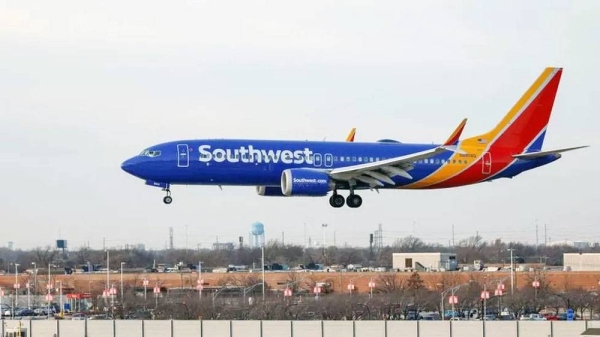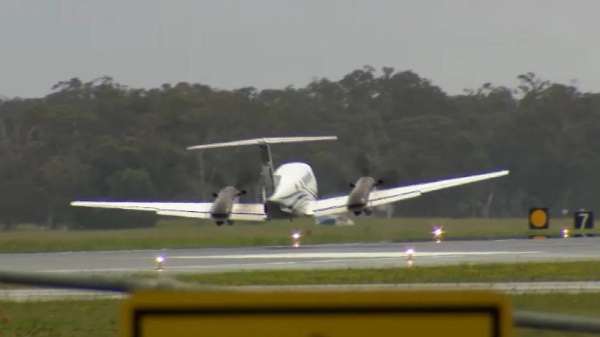
A Boeing cargo airliner made an emergency landing in Florida on Thursday night after what its operator called “an engine malfunction” occurred shortly after takeoff, in the latest setback for the beleaguered company.
Video taken by an eyewitness and posted to social media showed the 747-8 aircraft trailing flames and sparks from its left wing as it circled back to land at Miami international airport at about 10.30pm.
The operator, New York-based Atlas Air, said the plane “experienced an engine malfunction soon after departure”. Its crew of five “followed all standard procedures and safely returned” to the airport, it said in a statement, adding it would conduct a “thorough inspection to determine the cause”.
The Federal Aviation Administration (FAA) said on Friday it would be investigating the incident, adding that the eight-year-old Boeing 747-8 aircraft was heading for Puerto Rico. Its preliminary report stated that an inspection after the flight had landed revealed a “softball-sized hole” above one of its four engines, but did not specify when or how it occurred.
The plane, colloquially known as a jumbo jet, is equipped with four General Electric GEnx engines. The pilot reported a fire in the left wing engine closest to the fuselage, according to cockpit audio of the emergency call.
“Mayday, mayday, we have an engine fire,” the pilot calmly told the Miami control tower. “It’s engine number two, and we’re still trying to work it out.” The pilot said the fire started as it was gaining altitude after takeoff.
In a statement, General Electric Aerospace said: “Safety is our first priority, and GE Aerospace is providing technical assistance to FAA and the National Transportation Safety Board as they investigate the incident.”
The incident follows a series of other recent safety incidents involving Boeing’s aircraft, which prompted the FAA to announce last week it would significantly increase oversight of the company.
The agency is already conducting a formal inquiry into the in-flight blowout of a cabin panel on an Alaska Airlines 737 Max 9 aircraft after takeoff from Portland, Oregon, on 5 January. Nobody was seriously hurt, and the FAA grounded 171 737 Max 9 planes while it investigated.
The FAA administrator, Mike Whitaker, said the new 737 Max 9 aircraft model had “significant problems” and “we believe there are other manufacturing problems”.
On Saturday, a Boeing 737-800 airliner belonging to Nippon Airlines returned to its departure airport at Toyama after a crack was found in its cockpit window.
The incidents represent the biggest safety crisis for the company since 346 people were killed in separate 737 Max 8 jet crashes in 2018 and 2019, leading to the grounding of that aircraft model worldwide for almost two years.
Boeing on Friday referred questions about the flight’s operation to Atlas Air, which it called its “customer”. In a brief statement, it said it was “supporting our customer and will support the NTSB investigation into this incident”.
The company’s chief executive, Dave Calhoun, had told employees in an all-hands town hall following the Alaska Airlines blowout that he accepted the company was at fault for that episode.
“We’re going to approach this, number one, acknowledging our mistake. We are going to approach it with 100% and complete transparency, every step of the way,” he said.
On Tuesday, Boeing announced it had hired a retired US navy admiral, Kirkland Donald, to act as an independent special adviser to “conduct a thorough assessment of Boeing’s quality management system for commercial airplanes, including quality programs and practices in Boeing manufacturing facilities and its oversight of commercial supplier quality”.
Donald, Calhoun said, would receive “any and all support he needs from me and from across the Boeing Company” to make safety and quality control recommendations.












